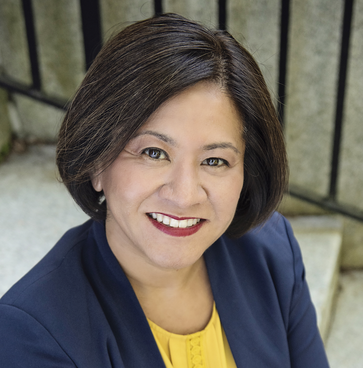
Yukari Iwatani Kane is a founder and executive director of Prison Journalism Project. She is an author, educator and veteran journalist with 20 years of experience. She was a staff writer and foreign correspondent for The Wall Street Journal and Reuters, and her book Haunted Empire: Apple After Steve Jobs (Harpers Business) was a best-seller, translated into seven languages. Yukari has taught journalism fundamentals, investigative reporting and the Medill Justice Project at Northwestern University and was previously a lecturer at University of California, Berkeley’s Graduate School of Journalism. At San Quentin News, where she still serves as an advisor, she developed a curriculum and reader for prison journalism. She is a member of Institute for Nonprofit News’ Emerging Leaders Council and is a 2021-2022 Reynolds Journalism Institute fellow.
What’s the most important lesson you’ve learned as a writer?
I remember listening to an NPR program several years ago where two writers were debating whether writing can be taught. I know it can be taught because I used to be a terrible writer. But I’ve also learned that it’s hard work, it’s a messy process, and it always will be.
I’m a better reporter than a writer. I’m good at research, I have a keen eye for observation, and I can get people to open up. I’m also pretty good at coming up with story ideas. But put me in front of a computer to write my story, and I crumble. I might spend hours agonizing over one sentence, sometimes even one word. And even though I care deeply about my writing, my first draft is so bad it makes me want to cry.
Over the years though, I’ve learned that almost every writer I admire goes through a similar process. It helps to have talent for sure, but every gem of a story you come across that you might wish you’d written is the result of lots of blood, sweat and tears — and probably the help of a good editor.
What has been the biggest surprise of your writing life?
I became a journalist because I wanted to tell stories about people and communities that wouldn’t be seen or heard otherwise, and I used to think that would be something that I needed to do myself. But 20 years into my career, I’m realizing that I can also make a difference as an editor.
About five years ago, I started teaching journalism at San Quentin State Prison in California. Every time I went in, I would come across amazing stories, but none of them were mine to tell. I couldn’t do them justice as an outsider. That led to my current work at Prison Journalism Project teaching incarcerated writers the craft of journalism and writing, working with them to develop their story ideas and editing their stories, so they resonate with readers outside.
I never thought of myself as an editor, but I really enjoy it.
If you had to use a metaphor to describe yourself as a writer, what would it be and why?
I wanted to come up with a clever metaphor, but the truth is that I think of myself as a psychologist. I like to step inside my sources and the characters in my stories and imagine what it might be like to be them and try to see and understand the world from their perspective. In my research, I look for information and background that gives me insight into who the person is. That leads me to people in their lives that might be able to shed light in an interesting way. I am always observing and assessing people and situations, looking for clues as to who they are. Before I can write about someone, I need to feel like I understand them.
Nothing gives me more satisfaction than identifying the one feature or item that best defines a person. When I was reporting on a factory girl in China, I noticed she had braces. That said more to me about her ambitions and dreams than anything she could say.
What is the best piece of writing advice anyone ever gave you?
The biggest influence on my writing has been Tom French, who was my writing coach when I wrote “Haunted Empire.” He taught me many things, but there were two lessons in particular that profoundly changed the way I write.
The first is to think of my pen (or keyboard) like a video camera when I’m telling a story. I zoom in on aspects of a scene, and I pan out to describe the overall picture, but I never jump back and forth because I don’t want to give the reader whiplash. When I write, I think cinematically. This allows me to get my sequencing right without getting too technical about it.
The second is this: Readers are always looking for an excuse to quit reading. That means the last word of every sentence needs to be powerful enough to compel someone to read the next sentence. The last sentence of every paragraph has to be powerful enough to compel them to read the next paragraph, and the last paragraph of every chapter has to compel them to read the next chapter.